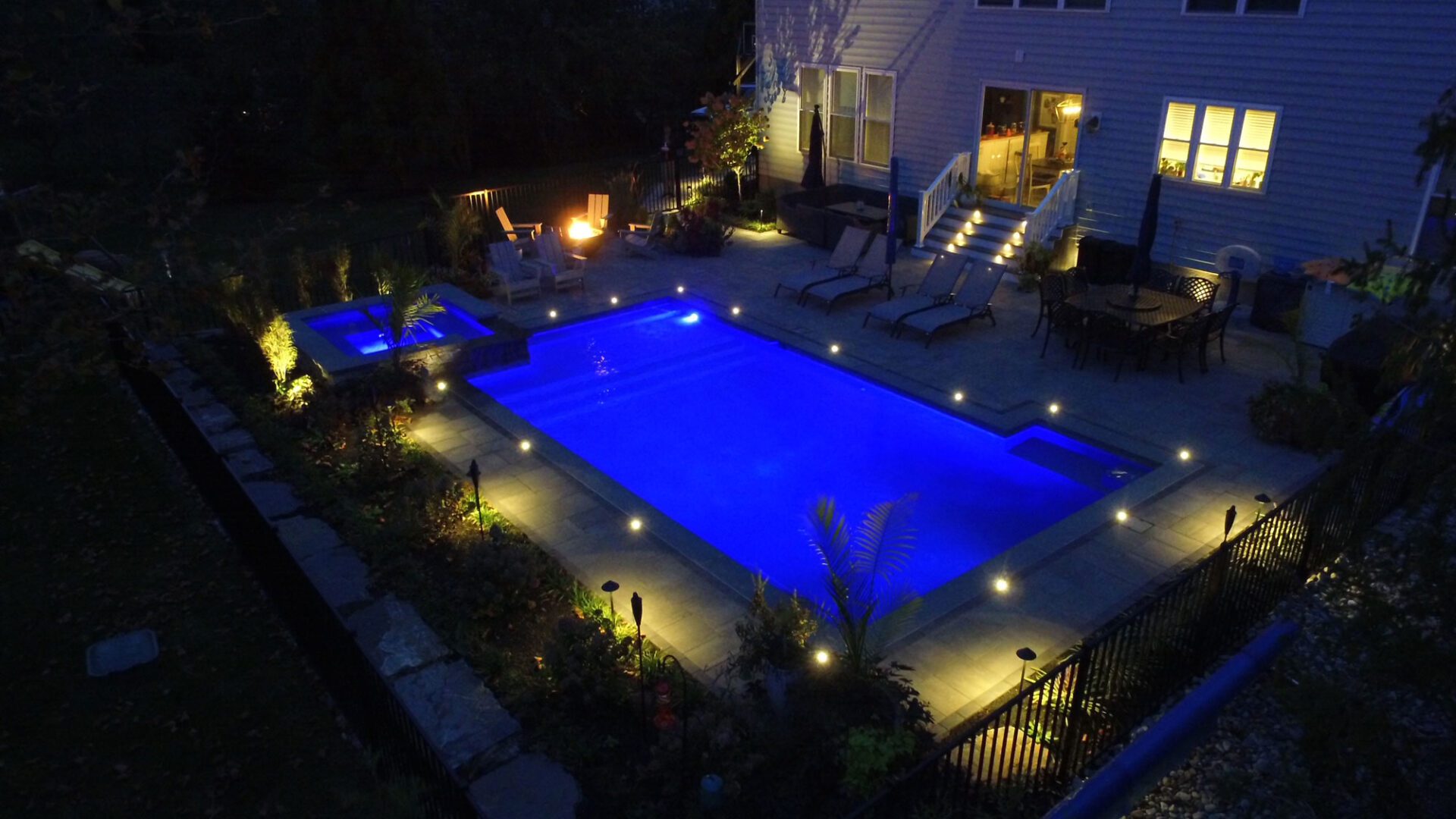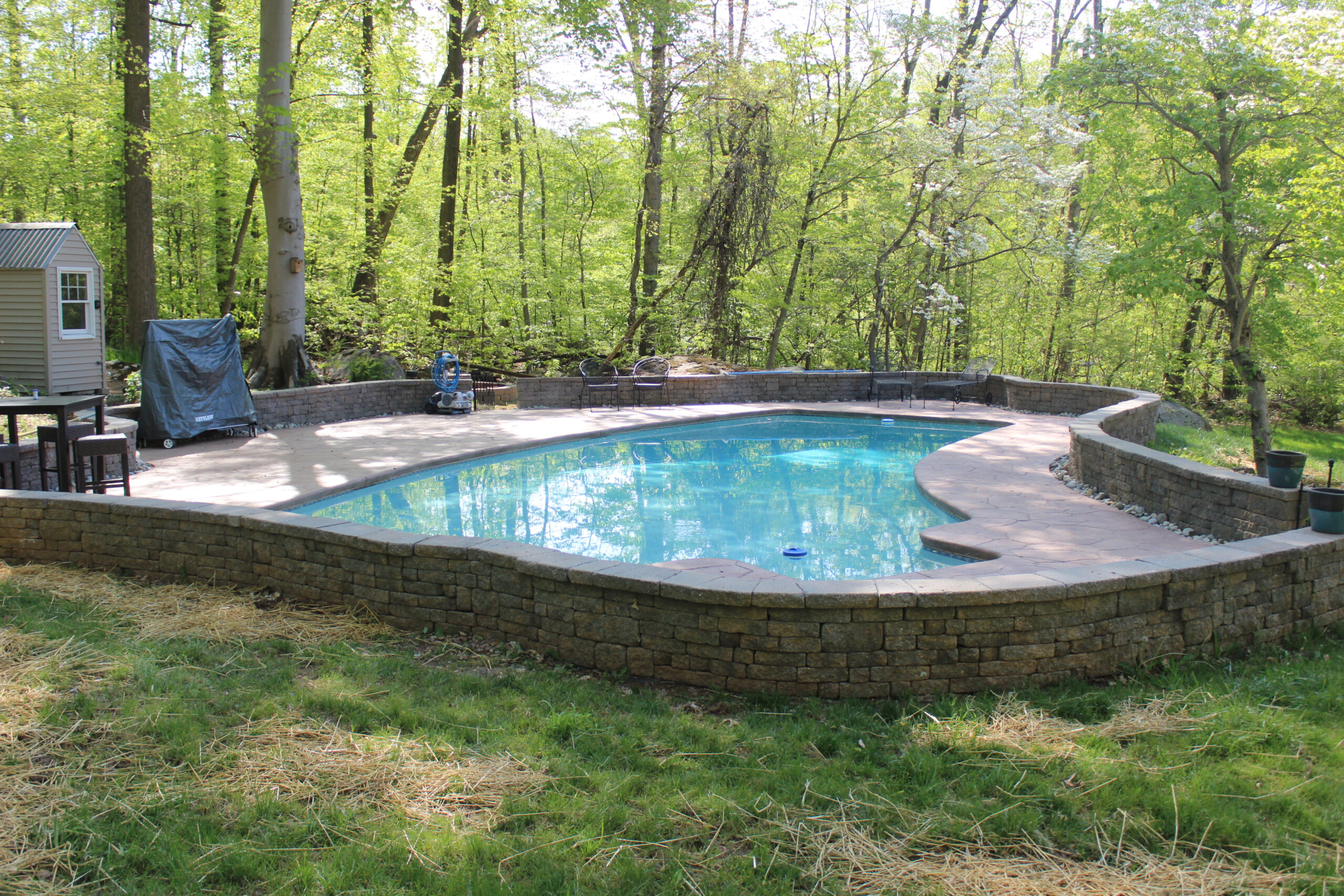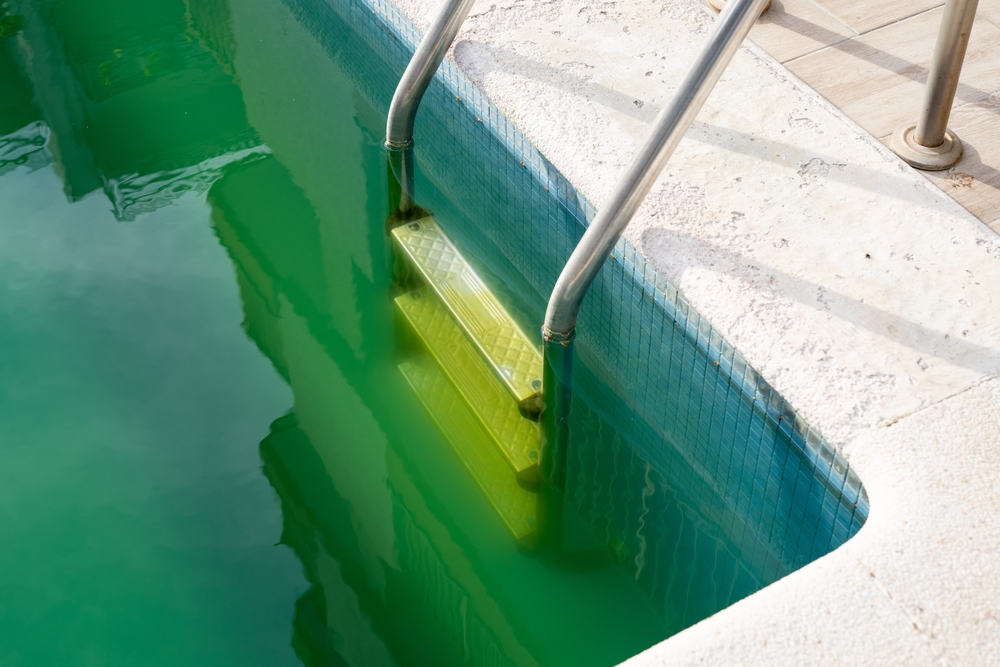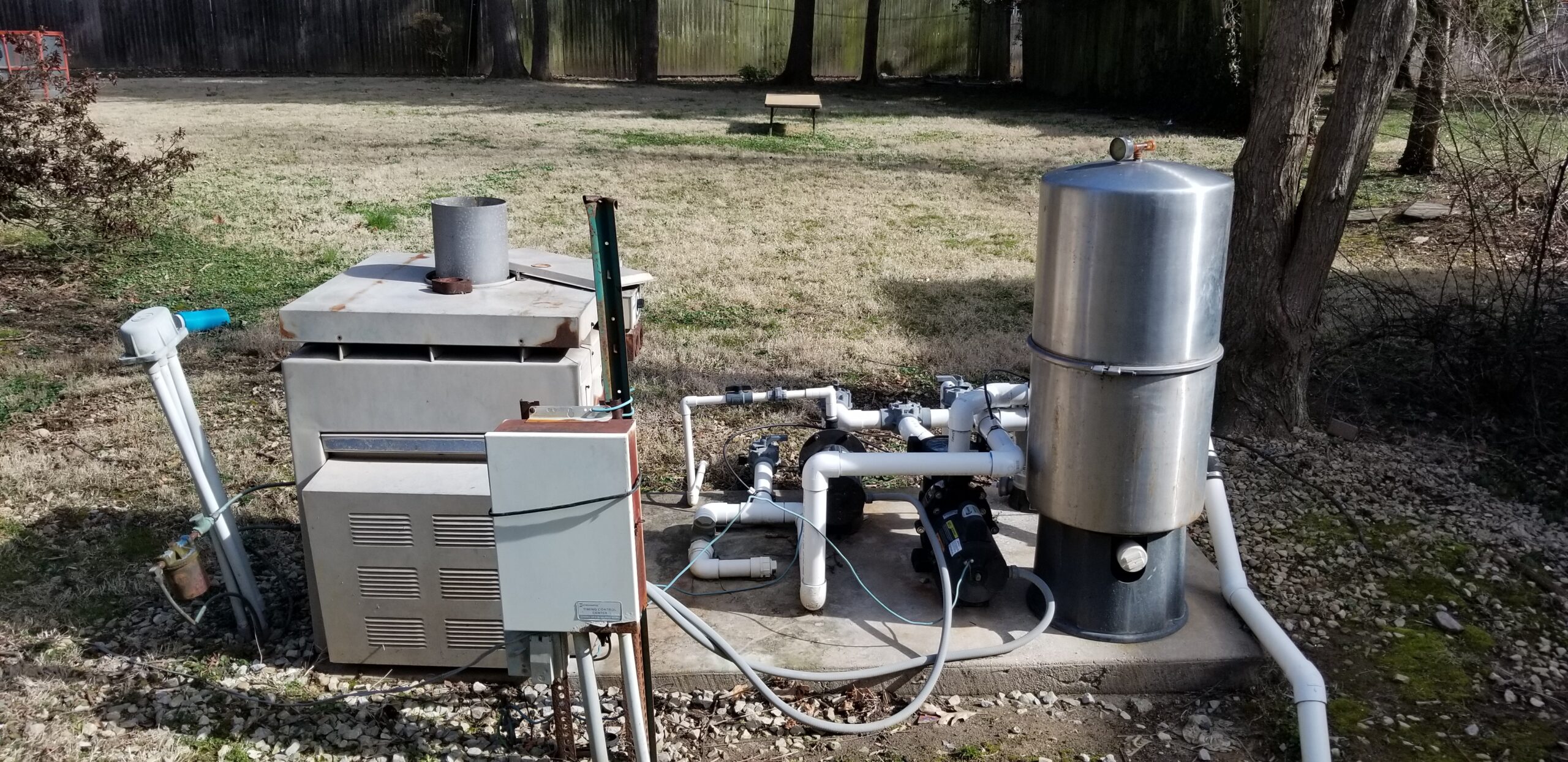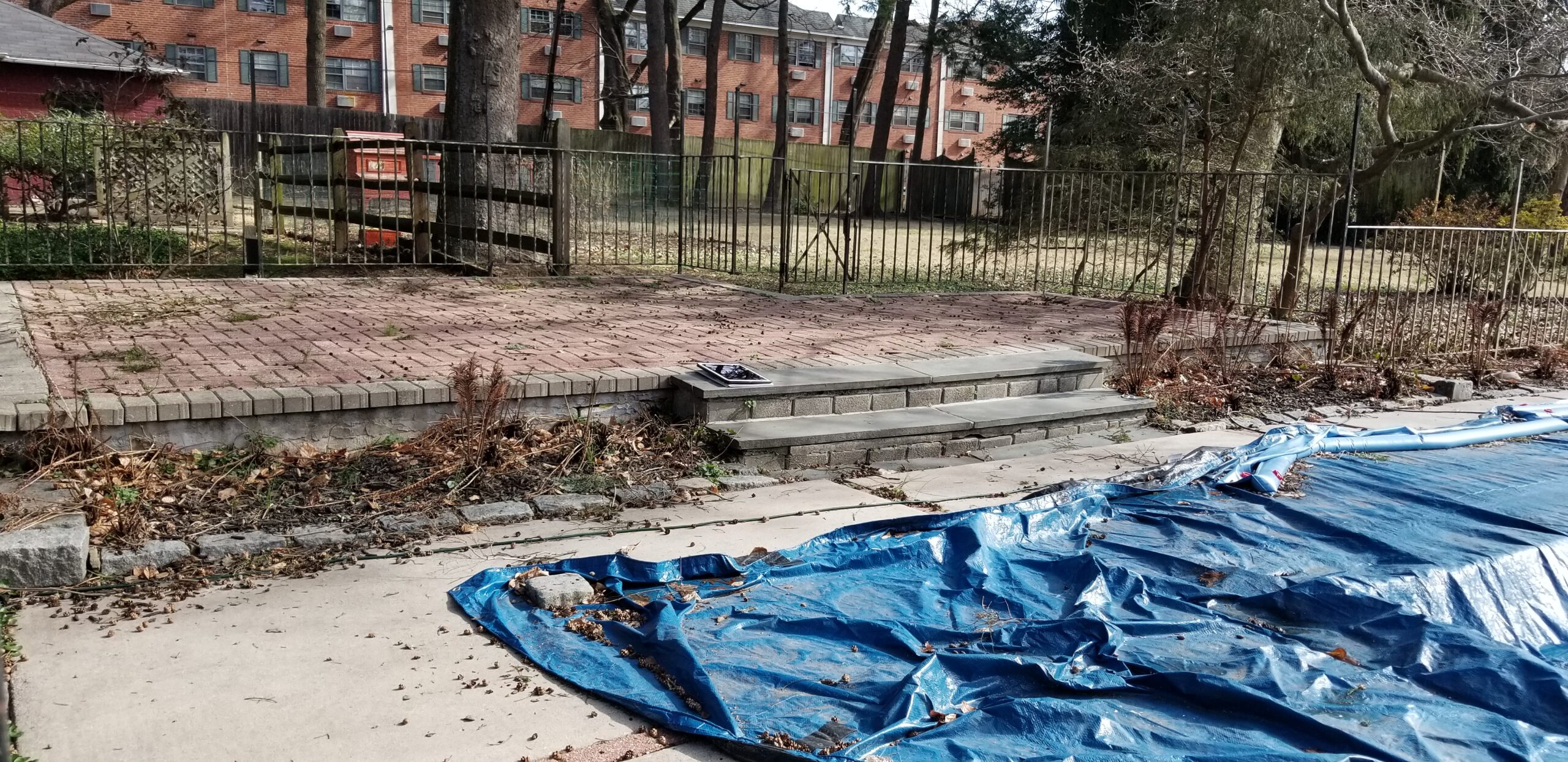In light of the rapidly approaching cold weather season, addressing freeze protection for pools is essential. Homeowners who invest in swimming pools should take measures to maintain their pool and pool equipment to prevent damage or loss. Winterizing your pool can consist of a few strategies and using the right products. Learn how to avoid freezing and keep your pool ready for the following season.
Winterize Your Pool
The first step in winterizing your pool is draining water from the external equipment. The components can include the pump, heater, filter, and other pieces not directly part of the pool’s structure. You’ll also want to ensure you remove the drain plugs to avoid them freezing later in the season.
Next, you’ll want to add a special pool antifreeze to any pipes or lines that run to the pool. Remove any water from the lines before adding the antifreeze, and seal off the pipes and lines at the pool to ensure water doesn’t leak into them later.
Run the Pump in Freezing Weather
It’s also important to keep the pool pump running during freezing weather. Make sure that the valves of the pump are also open. Another strategy is installing special freeze equipment that can be found at a reputable pool contractor and product retailer.
Whenever there is freezing weather, you’ll need to keep your pool running continuously to prevent freezing. Knowing when to expect freezing weather is the best way to protect the pool without running the pump around the clock. If you live in an area with frequent freezing weather, you can get alerts on your phone or add an extra temperature sensor that provides a way to automatically turn on the pump when the temperatures drop to a programmed number.
Pool Covers
Pool covers are essential for protecting the pool during the winter months. Without the right winter pool cover, the pool’s structure may be compromised, and costly damage may occur. Investing in a quality winter pool cover is the best way to ensure your pool survives unscathed during freezing weather and is ready to use once the weather warms up. It’s a purchase that can save you money in the long run and ensure you get the most out of your pool.
Additionally, keeping your pool covered can prevent animals, leaves, debris, and other contaminants from entering the water and causing algae and bacteria to begin growing. When this occurs, it may be extremely difficult to clean the pool when the weather warms up, and you’ll likely need to drain and clean the pool thoroughly. When you keep the pool covered and free from debris, it’s easy to adjust the chemicals you need to add to get the water ready to enjoy later in the coming warm weather months.
Consult with your local pool company in Glenmoore, PA, or learn more about outdoor living in Furlong, PA to get recommendations on pool covers and assistance with buying the proper shape, size, and specifications for your area. You’ll easily be able to get your pool winterized and ready for freezing weather without having to repair damage or perform costly cleanups after the winter passes.
Summary
If you own a pool and decide to take steps to prevent it from freezing during the winter, you’ll need to take certain actions. First, it’s essential to know which winterizations make sense for your type of pool and the location in which you reside. People living in colder climates should take more precautions and focus extra attention on winterization. You’ll also need a quality pool cover designed especially for your type and shape of pool. Please consult with our team at Scott Payne Custom Pools LLC to get more information.
